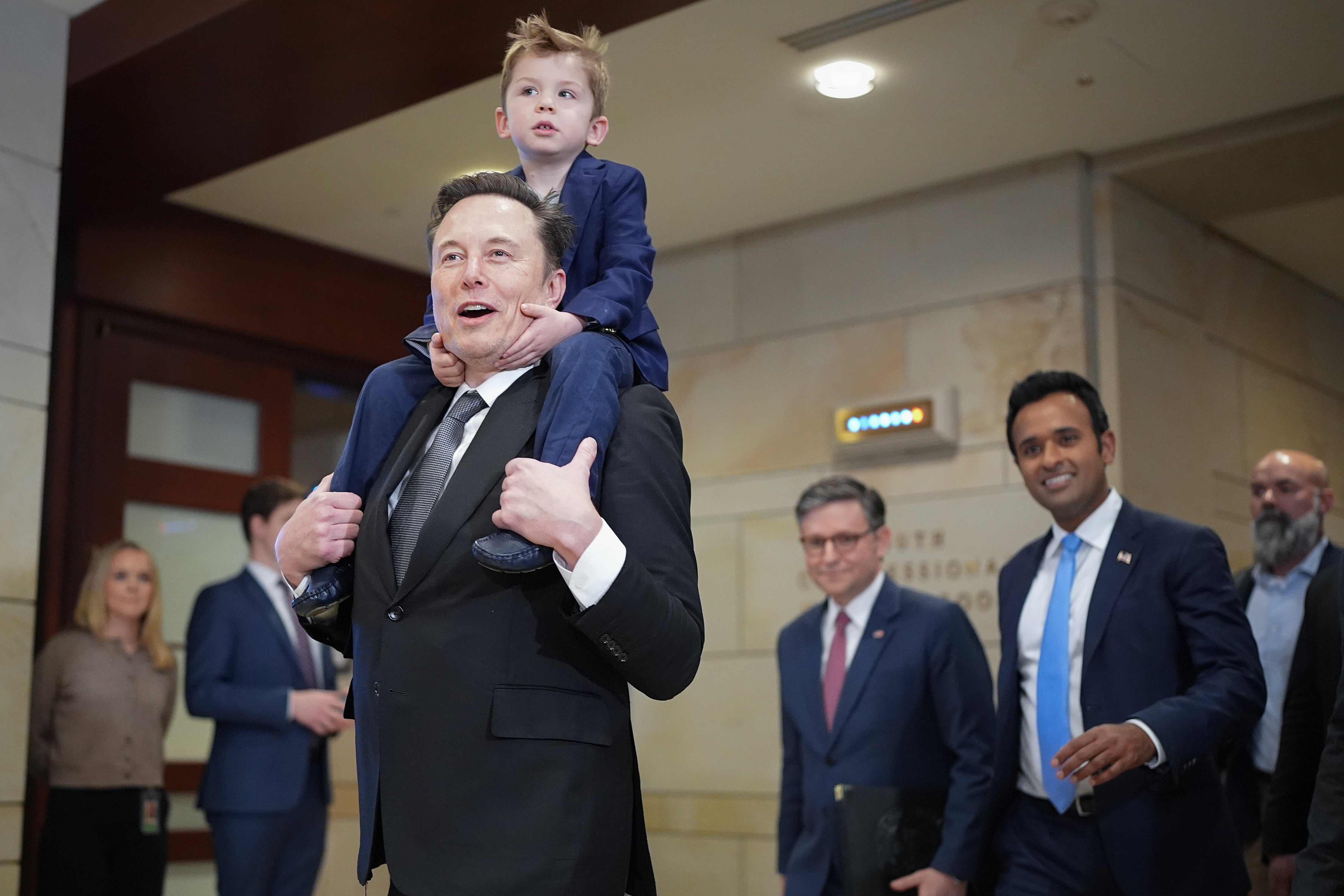Vivek Ramaswamy, the biotech entrepreneur turned failed presidential candidate, reportedly backed away from co-chairing the newly formed Department of Government Efficiency due to “deep philosophical differences” over how the advisory board should function.
Ramaswamy was tapped to co-chair DOGE with billionaire entrepreneur Elon Musk. They aimed to slash federal spending by trillions of dollars through budget cuts and mass firings.
In November, Ramaswamy wrote in an op-ed for the Wall Street Journal explaining how DOGE would dismantle the administrative state using current laws and Supreme Court precedents. This includes reducing the federal workforce, stripping agency regulations via executive orders and re-examining the budgeting process within each agency to reduce costs.
That, stood in contrast to Musk’s approach which reportedly focused on technology and data mining to achieve DOGE’s aim to cut federal spending, those familiar with the plan told the Washington Post.
On Monday, President Donald Trump signed an executive order establishing DOGE. Much of its layout mirrored policies that fell in line with Musk. Hours later, the White House confirmed Ramaswamy would depart as a co-chair.
Speculation about Ramaswamy’s position leading DOGE has been circulating for days. Though Musk and Ramaswamy appear to have a good relationship publicly, those familiar with the matter told CBS News there had been tension behind closed doors.
According to the Post, Musk believed DOGE should operate as a small team within the government that can access highly sensitive information. With that information, Musk could draw on his business experience and use AI to achieve the cuts.
With the two different approaches, it led to a break, sources told the Post.
“These were competing visions,” the person said.
Musk used his Tesla and SpaceX empires to find people to work for DOGE, the Post reported. He also used SpaceX’s Washington, D.C., headquarters for a DOGE command center. Ramaswamy, instead, had a small team of staff who worked from his home state in Ohio, without a set schedule. They looked for constitutional measures where costs could be trimmed.

The two also battled over who the true leader of DOGE was, the Post noted, given Musk’s large presence. Sources told the outlet the partnership was probably doomed from the start.
“I don’t think Vivek would have signed up under any sense on paper he wouldn’t be co-lead,” said one person with knowledge of DOGE’s structure. “All the assurances were they were going to be coequal leaders.”
Tensions between the two bubbled after Ramaswamy earned the ire of some Trump allies by claiming the U.S. does “not produce the best engineers” in a post supporting H-1B visas.
The icing on the cake was Ramaswamy’s desire to pursue political ambitions. By co-chairing DOGE, Ramaswamy likely would not be able to focus his attention on fulfilling those. The tech entrepreneur has teased a possible political campaign in Ohio – rumored to be a gubernatorial run.
Now, Musk will lead DOGE – which, despite its name, is not an official department.
It seems apparent that Trump was convinced of Musk’s DOGE plan from the executive order establishing it. Much of it focuses on the technology portion of the government, dictating that agency heads should allow DOGE to have “full and prompt access to all unclassified agency records, software systems and IT systems.”







